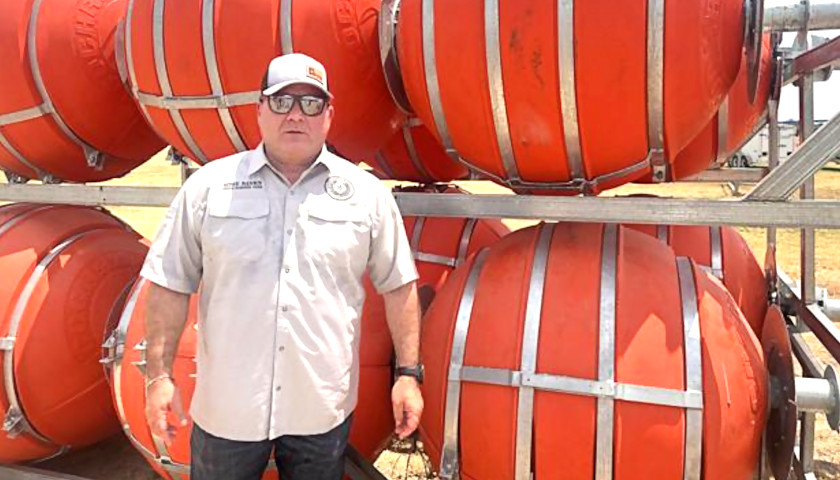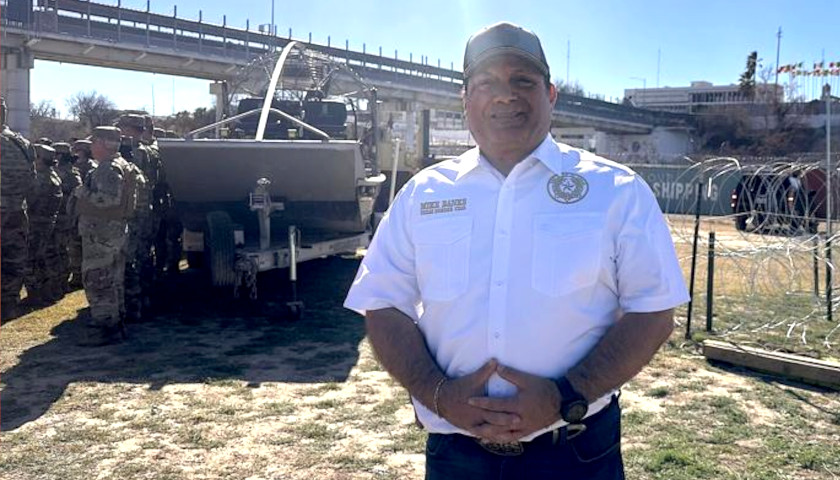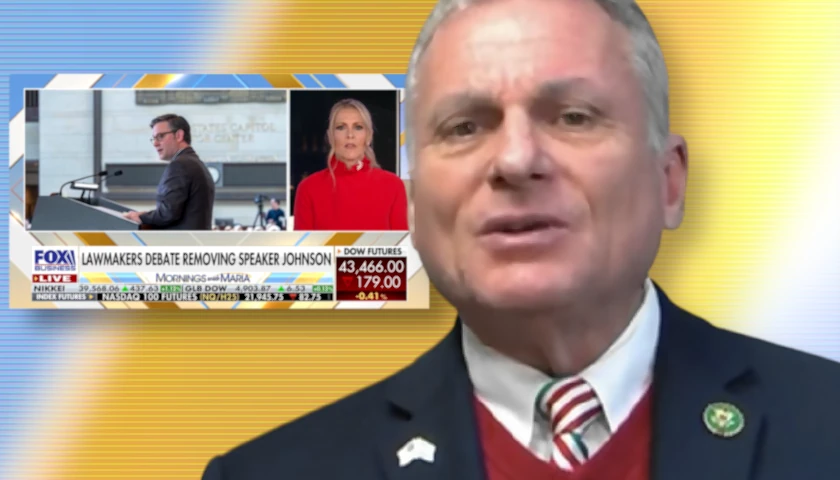by Bethany Blankley
One year in as Texas’ “border czar,” Mike Banks says the state has been so successful at blocking illegal entry that cartel activity has been pushed west into Democratic-led states that aren’t implementing similar tactics that Texas has.
Banks spoke with The Center Square in an exclusive interview after reaching the one-year mark in his new role on Jan. 30. Gov. Greg Abbott tapped him for the role within 24 hours of his retirement from U.S. Border Patrol, creating his position to oversee and augment border security efforts already underway through Abbott’s border security mission, Operation Lone Star.
Abbott created the state “border czar” role after President Joe Biden declared Vice President Kamala Harris “border czar,” saying she’d be overseeing border security operations. Harris has been absent from the border, even denying there is a crisis. Abbott has argued Banks has done more in one day than Harris did in the years she’s held the title.
Banks was “the perfect choice” to be Texas’ first-ever border czar, Abbott argues, because of his 23 years of Border Patrol experience serving in three states and Washington, D.C., under four presidents. He’s “seen firsthand the struggles of ranchers and communities caused by open borders,” Abbott said when announcing Banks as border czar last year. “He understands the dangerous impacts that Mexican cartels have on our country.”
When looking back over the past year, he told The Center Square, “I think it’s been an outstanding year. I think we’ve been able to achieve even more so than I thought we were going to be able to achieve.”

Texas, which shares the longest border with Mexico of 1,254 miles, has historically had the greatest number of illegal border crossers.
One year after Banks began directing OLS operations, helping to direct Texas Military Department efforts to block illegal entry, he said compared to a year ago, “if you look at the number of illegal border crossings today, Texas counts for 30% of those crossings. The remaining 70% are crossing in Arizona, California, and New Mexico. Why? Because they’re not putting up the resistance that Texas is.”
“I was taught as a young Border Patrol agent to always follow the path of the least resistance when you’re looking for illegal border crossings and you’ll be successful,” he explained. “Texas has created that path, the greatest resistance.
“When you hear the naysayers say the traffic is just going around us, that is true. I can tell those naysayers that they’re not only going around us, they’re going way around us. They’re going to Arizona, California, and New Mexico.”
Banks reiterated a point Abbott made on Sunday at a press event in Shelby Park, in Eagle Pass, Texas. The Texas Military Department taking over the park is only one area between ports of entry being shut down on Texas soil.
“As Texas gains control of an area,” Banks said, “we’re going to maintain that area and we’re going to expand. We’re going to gain, maintain, expand. We’re going to cut off illegal entry into the state of Texas.”
He said Mexican cartel coyotes direct illegal entry into Texas from Mexico. “No one crosses that border illegally without paying a fine to the cartels,” he said.
The Gulf Cartel controls entry from Mexico in the Rio Grande Valley, The Center Square has previously reported. The Los Zetas and Cartel del Noreste control access to nine Texas counties from Starr to Val Verde, through the Mexican states of Nuevo Leon and Coahuila. In specific areas in the U.S. and Mexico, several cartels are fighting for control of smuggling routes. The Sinaloa Cartel controls the majority of the southern border: from California to Brewster County in west Texas.
Last year, the Texas legislature designated cartels and transnational criminal organizations as Foreign Terrorist Organizations, after Abbott did by executive order.
“The cartels control everything,” Banks said. “They hold migrants in warehouses and stash houses until they have a large amount of them and then force them to cross at one location at one time, overwhelming Border Patrol resources,” he explained, referring to a cartel tactic called “task saturation,” Tucson Border Patrol Chief John Modlin has also explained.
When Border Patrol agents are pulled off the line and “large swaths of the border are left wide open,” Banks said, “that’s where the cartels can push through their hard narcotics, their high value targets … we’re denying them that.”
Part of the defense Banks helped organize is to identify where high traffic is directed by cartels and erect barriers to block it and then work with DPS to interdict.
“Anywhere where we see high traffic coming across, we’re going to take what we call a PDI position: position, deter and interdict. We’re going to do everything we can to prevent them from crossing. And if they’re going to cross, to interdict them, make that arrest and then charge them either with criminal trespass or whatever legal state law they violated and they will serve time.”
“Illegal entry in Texas has consequences,” he said, which is why the cartels are redirecting efforts much farther away to Arizona, California and New Mexico.
– – –
Bethany Blankley is a contributor to The Center Square.
Photos by Bethany Blankley.








